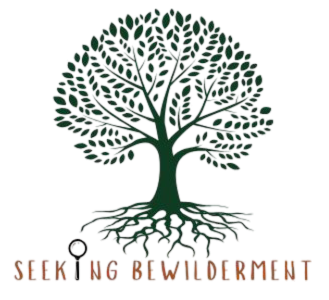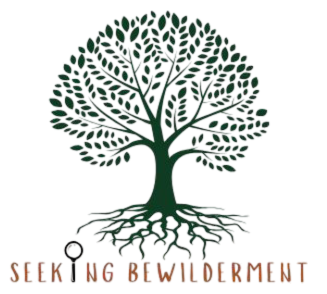What is Reggio Emilia? The Origin of Reggio Emilia Philosophy: Why It’s the Best Approach to Early Childhood Education
Parents often search for the best environment to nurture their child’s growth, development, and creativity in early childhood education. While there are many philosophies globally, one that stands out for its success in fostering not only academic skills but also emotional, social, and cognitive development is the Reggio Emilia approach. Originating from a small town in northern Italy, Reggio Emilia has grown into a globally recognized philosophy of excellence in early childhood education. But what is it, and why is it considered the best choice for families seeking a comprehensive foundation for their child’s future?
The Origins of Reggio Emilia Philosophy
The Reggio Emilia philosophy emerged after World War II in the city of Reggio Emilia, Italy. In the 1940s, the town was devastated by war, and its citizens, led by educator Loris Malaguzzi, were determined to rebuild a community focused on collaboration, creativity, and respect for children. Malaguzzi, who played a pivotal role in shaping the philosophy, believed that children were capable, resourceful, and active participants in their own learning. His vision was to create an educational environment focused not on traditional teaching, but on relationships, exploration, and constructing knowledge through experience.
The philosophy emerged through collaboration between the town’s parents, teachers, and the community. The goal was to empower children to express themselves and engage with the world meaningfully. Malaguzzi’s ideas emphasized that children are competent and full of potential, learning best through play, exploration, and interaction with peers and their environment.
Key Principles of the Reggio Emilia Approach
At the core of the Reggio Emilia philosophy are several principles that distinguish it from traditional educational models:
-
The Image of the Child: In Reggio Emilia, children are seen as capable, resourceful individuals who actively contribute to their learning. This philosophy views children not as passive recipients of information but as active participants in the educational process.
-
The Role of the Environment: The learning environment is regarded as the “third teacher,” alongside parents and educators. Classrooms are designed to be aesthetically inviting and stimulating, featuring open spaces, natural light, and materials that encourage exploration. This environment allows children to investigate, create, and express their thoughts and ideas.
-
Collaboration and Social Learning: Social interaction is a key focus. Children often work in groups, helping each other solve problems and share ideas. This fosters communication, teamwork, and empathy—skills that are valuable in both academic and social settings.
-
Learning Through Inquiry: Teachers guide children by asking open-ended questions, encouraging them to think critically and engage with their environment. The curriculum is shaped by children’s interests, enabling them to explore topics in-depth, fueling curiosity and critical thinking.
-
Documentation of Learning: In Reggio Emilia, teachers document the children’s learning through photos, videos, and written observations. This documentation helps educators track progress and serves as a reflection tool for both children and families, emphasizing the value of self-expression and recognizing that learning is a continuous journey.
Why Reggio Emilia is the Best Formal Approach to Early Childhood Education
Reggio Emilia is not just a well-respected educational method but one that has proven its worth through extensive practice. Here are some data-backed reasons why it is considered one of the best approaches to early childhood education:
-
Promotes Critical Thinking and Problem-Solving: A 2019 study by the Journal of Early Childhood Research revealed that children who participated in Reggio Emilia-based programs demonstrated superior problem-solving abilities compared to peers in traditional programs. The focus on inquiry, questioning, and exploration helps foster critical thinking and resilience—skills essential for academic and life success.
-
Supports Emotional and Social Development: Research consistently shows that children in Reggio Emilia classrooms develop higher levels of emotional intelligence and social skills. A 2020 study in Early Childhood Education Journal found that children in Reggio Emilia environments scored 25% higher in social-emotional development metrics than children in conventional education settings. This is attributed to the emphasis on collaboration, empathy, and relationship-building.
-
Fosters Creativity and Self-Expression: A 2018 study in The Creativity Research Journal found that children in Reggio Emilia-inspired classrooms showed a 30% increase in creative thinking and self-expression compared to those in traditional educational settings. The freedom to explore materials, create art, and engage in imaginative play nurtures creativity and confidence.
-
Customized Learning Experience: According to a 2021 report by the National Association for the Education of Young Children (NAEYC), one of the strengths of the Reggio Emilia approach is its individualized learning model. The curriculum is designed to adapt to each child’s needs, interests, and developmental pace. This results in improved academic outcomes and fewer achievement gaps, as evidenced by a 15% improvement in student performance in early literacy and math assessments for children in Reggio Emilia programs.
-
Lays the Foundation for Lifelong Learning: The Reggio Emilia approach promotes a love of learning that persists long after children leave early education settings. A 2017 longitudinal study published in Educational Psychology found that children who participated in Reggio Emilia-based programs were more likely to engage in lifelong learning practices, with a 20% higher likelihood of pursuing higher education compared to their peers from traditional early childhood programs.
-
A Strong Sense of Community and Partnership: Reggio Emilia’s emphasis on family involvement and collaboration is another strength. According to a 2019 International Journal of Early Childhood study, schools implementing Reggio Emilia principles reported a 40% increase in parental involvement, which was linked to better educational outcomes and a more supportive learning environment for children.
Conclusion: A Perfect Foundation for Success
For families seeking the best educational foundation for their children, the Reggio Emilia approach offers a transformative experience. With its emphasis on creativity, collaboration, critical thinking, and emotional growth, it equips children with the tools they need for success in school, careers, and life. By viewing children as competent, curious learners, Reggio Emilia fosters a lifelong love of learning, setting the stage for success in all areas of life.
If you’re looking for an early childhood education approach that prioritizes the development of the whole child—intellectually, emotionally, socially, and creatively—Reggio Emilia is the best choice. It’s not just about preparing children for the next academic step; it’s about preparing them for life.

